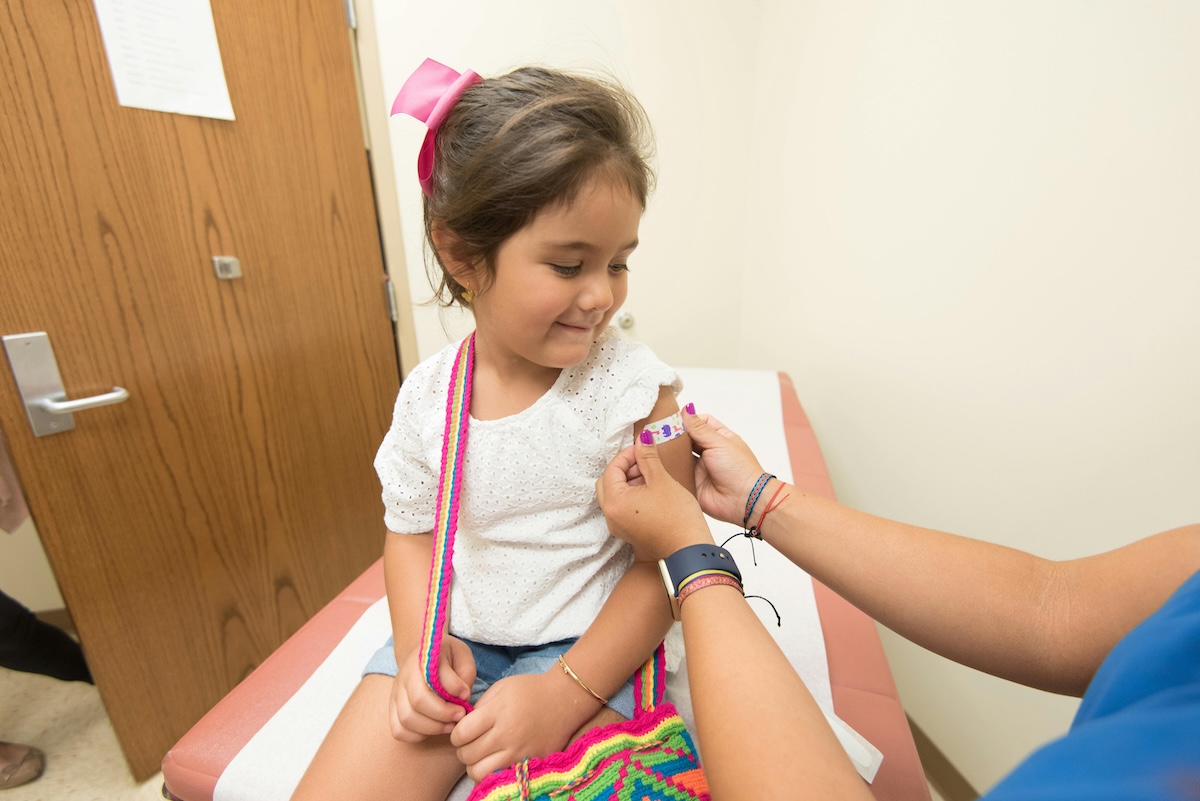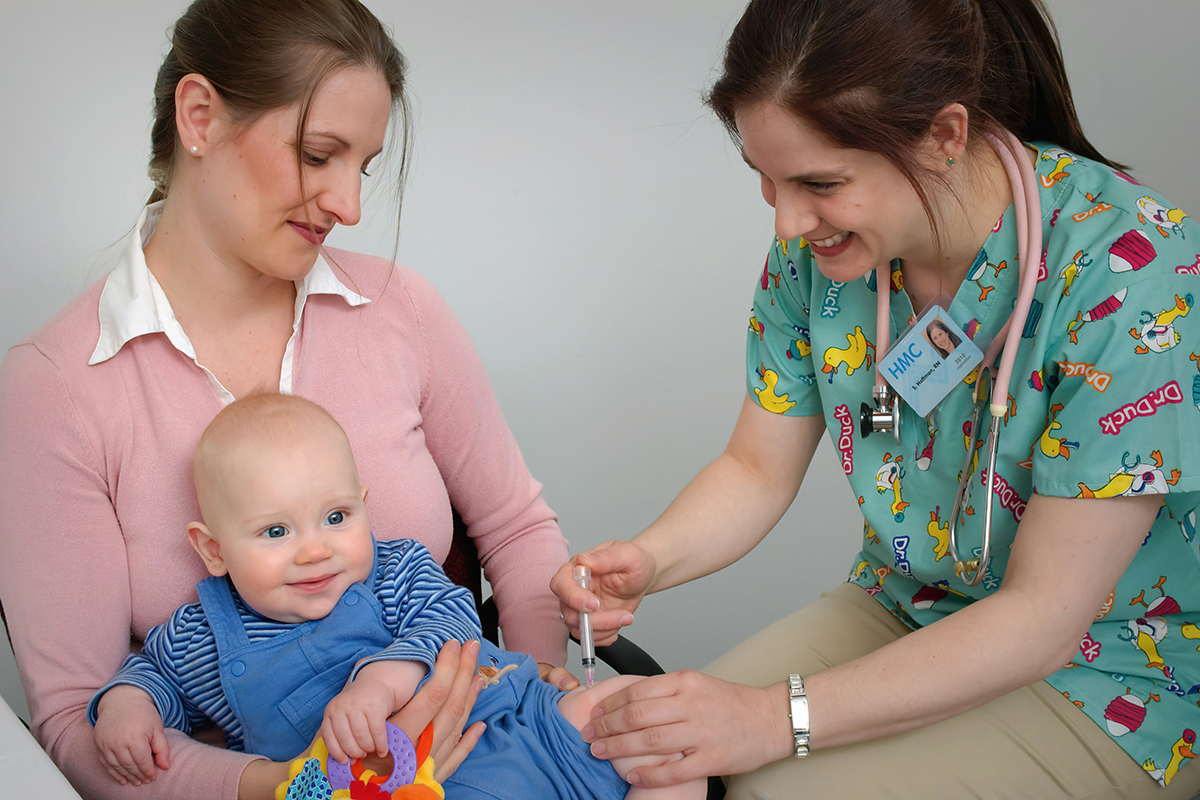The need for evidence-based policy and guidance on vaccines is more crucial than ever. Robert F. Kennedy, Jr. is heading up Health and Human Services, and he has made no secret of his distrust of the current approach to vaccines. Under his leadership, there have been changes to core vaccine committees, which have already led to changes in key vaccine recommendations.
Many of these changes are coming from the Advisory Committee on Immunization Practices (ACIP, pronounced ay-sip), which is within the CDC. Until recently, most people had probably never heard of this committee, let alone watched their meetings in full on YouTube. But the actions of this group have become increasingly important, and this is likely to continue.
These actions are also extremely confusing, adding to an already chaotic public health landscape. My goal here is to provide a sense of what this committee does, what changes have been made recently, and what this means for parents.

What role does ACIP have in childhood vaccines?
When a new vaccine is developed in the US, initial approval is done through the FDA. The FDA supervises a series of placebo-controlled trials, typically run by the drug manufacturer. After these trials, the FDA evaluates the evidence – including both evidence on efficacy and safety –and makes approval decisions. They can specify approval of vaccines only for certain groups, or more broadly. Once a vaccine is approved, it becomes available to patients. Insurance providers may then make separate decisions about whether they will cover those vaccines. Public insurance (like Medicaid) is generally required to cover all FDA-approved vaccines.
Beyond this point, ACIP makes recommendations to the head of the CDC about, among other things, which vaccines should be recommended. This group has traditionally been responsible for developing the recommended pediatric vaccine schedule; however, the CDC recently made a number of changes to the schedule without their input. Other groups (like the AAP) also issue vaccine recommendations, which are separate and may or may not be the same as ACIP.
ACIP follows the FDA. If a vaccine has not been approved by the FDA, ACIP cannot recommend it. However, they do not have to recommend a vaccine even if the FDA has approved it. They also do not make decisions on their own, only make recommendations that may or may not be followed. ACIP also makes recommendations around vaccine coverage in the Vaccines for Children program, which is the government program that covers vaccinations for many lower-income children.
ACIP recommendations hold a lot of power, for several reasons. One is that many providers rely on this vaccination schedule to make recommendations to patients. A second is that this schedule has typically been an evidence-based source for parents. Third, insurance coverage is often linked to these CDC schedules. In particular, the Vaccines for Children program follows ACIP guidelines in coverage.
How has ACIP changed?
Under RFK Jr’s leadership, a primary change is the composition of the ACIP committee. At the start of this political term, RFK Jr. removed all 17 members of the committee and replaced them with people who are largely more skeptical of vaccines than the previous members.
These changes have been felt in the structure and focus of the ACIP meetings. Recent meetings have taken up some of the core issues that vaccine skeptics have been animated about in recent years. This includes discussions of aluminum adjuvants (chemicals that are used to improve the efficacy of vaccines), discussions of the hepatitis B birth dose, and an overall review of the child vaccine schedule.
The meetings have also become much more contentious, with a small number of committee members (mostly doctors) with pro-vaccine views being largely drowned out in discussion by the more skeptical voices.
At the core of many of the vaccine updates (more on the specifics below) is a view that fewer vaccines should be universally recommended and more should be based on discussions with medical providers.
What are the changes to vaccines so far?
ACIP typically meets 4 times a year. Based on the discussion in these meetings, ACIP has already made a number of changes to vaccine recommendations.
COVID-19
The committee changed its language on COVID-19 vaccines from saying they are “recommended” to “under individual decision-making.” This was combined with a change at the FDA level, which limits COVID-19 vaccines to older individuals and those with various health issues.
MMRV
Most children get vaccinated for measles, mumps and rubella in one vaccine (MMR) and chickenpox in a second vaccine (the “varicella” vaccine). However, there is a combined vaccine – known as MMRV that is not widely used because it has an elevated risk for febrile seizures. However, it has generally been an option that some parents prefer because it’s only one shot.
ACIP changed the language around this option. It previously said that separate shots were “preferred” and the new language says that the single shot is “not recommended.” This change is unlikely to matter very much.
Hepatitis B
For several decades, the standard approach to hepatitis B vaccination has been to give the first dose of the vaccine within 12 hours of birth. This is known to dramatically reduce the risk of maternal transmission of hepatitis B if the mother is a carrier. If the mother is known not to be a carrier, there is less value to having this first dose at birth, and it can typically be pushed off several weeks (more on this choice here). However, the universal use of a dose at birth has been seen as important for public health because we do not always know whether people are carriers.
ACIP changed its recommendation to say that if the mother is known not to be a carrier, the choice about birth dose should be made in consultation with the doctor.
In practice, none of these changes are enormous — even in the hepatitis B case, the change actually reflects what is going on with most doctors anyway. What has worried more people, including myself, is that these changes are clearly part of an overall push away from vaccines. And the rhetoric around the changes uses language which is likely to cause many parents to question the safety of vaccines, despite no new (or old!) evidence to suggest significant safety risks.
What do these changes mean for parents?
For parents who are planning to fully vaccinate their children, these changes should not alter your ability to do that. The alterations to the ACIP recommendations are focused on moving from recommendations of universal vaccination to a recommendation, in some cases, of discussion between patients and doctor (“individual decision-making”). These changes are unlikely to change insurance coverage. A number of states have also stepped in to ensure that vaccines will still be covered by insurance.
This doesn’t mean these changes are without impact. The goal of many of the actions of ACIP seems to be to erode parental trust in vaccines. This is already happening, and has been happening for years. If vaccine rates continue to drop, it will increase outbreaks. These will be felt mostly by children who are unvaccinated – some of whom are likely to die – but it also threatens the health of children too young to be vaccinated. A world with endemic measles is a threat to everyone.
Beyond this, some of the changes ACIP has discussed might actually impact everyone’s ability to get vaccines. They have talked about limits on the use of aluminum adjuvant – a chemical that enhances efficacy. If this were removed, a large number of vaccines would have to be reformulated, and that would remove them from the market. It is, as yet, unclear whether ACIP really has the power to do this, although they may try. In the meantime, talk to your pediatrician about your preferences when it comes to vaccines, and ensure that you are on the same page, so you can navigate this as a team.
The bottom line
- ACIP, an advisory committee within the CDC, makes recommendations about who should get vaccines and creates the childhood vaccine schedule.
- ACIP does not approve vaccines (the FDA does that), but they can limit access based on their recommendations.
- The committee has already made changes in recommendations, but for parents who are planning to fully vaccinate their children, these changes should not alter your ability to do that.



















Log in
I was able to get 2 weeks ago at 15 weeks pregnant after doctor told me to get it right away vs. flu vaccine in October at her office. Luckily I didn’t need a prescription because my Governor had just signed an order the Friday before that, giving pharmacists the ability to prescribe it themselves. Thank you, NY State, eventually. Gov. Hochul does the right things but too slowly. Before that, I was thinking about having to have doctor send a prescription or going to NJ for it. They had it available right away in NJ
I don’t want to get flamed, but I was handed a document that has all the vaccines my four year old has had (I love this localized database my state apparently has, that’s awesome btw), and I did have a “sticker shock” moment. It was a tremendous number of listings, and they weren’t all separated out for things like MMR (that was listed as mmr not as three different listings). And I was like “how did we even get that many? Never seemed like that many?”
I went and tried to understand each one and why they had multiple doses, etc. I’m not a skeptic at all. But I won’t lie, I was like “that’s a LOT of things in her body by age four.”
to say “oh just trust the science” is not a good answer to someone who feels that sense of “that seems….a little concerning”. And if I mention my reaction to many, that is exactly what I’ll get—belittled, dismissed, etc. And I realized “oh this is how people become unhinged”.
You say that there is no evidence-based reason to space out vaccines. Is there an evidence-based reason to keep them on the current schedule? (Not a gotcha; my children are fully vaccinated according to the current schedule. I’m just curious.)
I think it’s partly a convenience thing, they time them with regular infant check ups (6 mo, 9mo, etc) and because some need to be spaced into a couple doses.
Also, Parent data has an article about this: https://parentdata.org/your-guide-to-childhood-vaccinations-before-age-2/
One downside is simply that if vaccines are delayed, a child is unvaccinated for that much longer, so that extra time is a time in which they might get sick unnecessarily.
Any thoughts on how this may play out with regard to local policies? I’ve read other speculative articles about states continuing to urge insurance companies who operate in their locale to offer vaccines to those who want it. So, what power do states have to 1) enforce vaccine policies among insurers, in schools, etc., 2) continue to provide free or subsidized vaccine programs even if they do not receive federal funding through Medicaid?
If you’re concerned about the erosion of trust in childhood vaccines, why write the Atlantic article about “forgiving and moving on” from what happened during COVID? Nothing eroded trust in public health like the misguided recommendations and false claims spread during that time.
An anecdote: my mom was skeptical about the COVID vaccine because she had seen the conflicting information we all had seen: it’ll keep you from getting COVID, actually it’ll just keep you from spreading COVID, actually it wasn’t even tested for that but it’s perfectly safe, actually it can cause myocarditis in young men, etc. That drove her to rely on information from actual anti-vaxxers, and now she says she regrets getting my sister and me vaccinated for *anything.* I’m sure she’s not alone in this thought process, unfortunately.
My concern is the childhood vaccination rates will continue to go down for that reason, not because the recommendation will change from “We always recommend this” to “Discuss this with your doctor.” Treating everyone the same during COVID regardless of age, risk, and other health attributes led to skepticism; in my opinion, taking a more personalized approach might help build back some trust that was lost.
I appreciate the post about the effect on current vaccines. An underreported consequences of these changes is stalled development of new or improved vaccines and other immunoprotective products, such as monoclonal antibodies. The pharmaceutical industry wants clarity, stability, and predictability for approval pathways and coverage options prior to investing in R&D for new products. These changes will undermine the next generation of vaccines and monoclonals for diseases such as Lyme disease, dengue, and other vector-borne diseases, which likely to spread in the US due to climate change, those that continue to evolve resistance to current therapies, such as tuberculosis and HIV, and those that are common but likely play a role in the development of chronic conditions or birth defects, such as mononucleosis, HSV I and II, and CMV. It’s unconscious, shortsighted, foolhardy, and a disgrace. We are being robbed not just of our current public health, but our future health. The spread of preventable diseases will also have tremendous economic implications, for the cost of health care for everyone, lost tourism, and increases in disability and sick time. I would love to see some cost estimates of the potential changes from that perspective as well.
How do you think insurance will respond to pediatric vaccines and coverage if option 2 prevails? My concern is insurance will look for any chance not to cover vaccines and they will become extremely expensive
Thanks for this, Emily. I was spiraling a few weeks ago as my husband and I think about TTC for baby #2: the circulation of some of these diseases will certainly continue to rise as we see more (unqualified) people in powerful positions sowing distrust of vaccines. What could I do to protect my baby? Will we need to be hermits for a year? Will I need to pull baby #1 out of daycare and/or drive to Canada to receive vaccines? I’m already mourning all of the children who will die to due to irresponsible politicians and “do you own research” parents.
Just a note, I’ve heard from a lot of Canadian friends that we almost certainly cannot go there to get vaccines. That was one of my first thoughts too, and I’m disappointed to learn that their national system probably wouldn’t accommodate people from the US. Just to set expectations.
Good luck with the TTC if you decide that. It’s always hard to be pregnant, but especially now. I hope people will still be able to get covid vaccines in pregnancy. This seemed to be an area still up for discussion.
I’m 8 months pregnant and was just able to get a covid booster but it wasn’t easy. My OB recommended I get it but didn’t have it available in the office. I had to try multiple pharmacies but finally was able to get the shot.